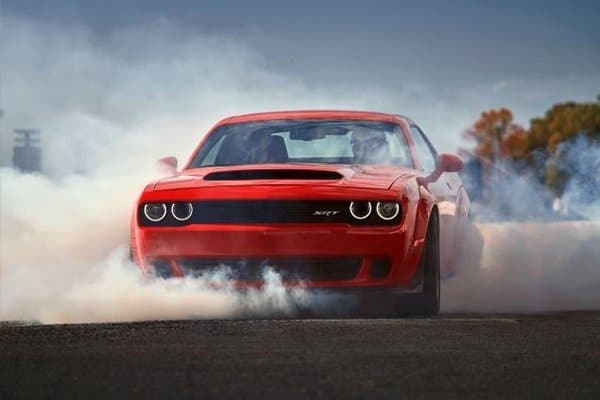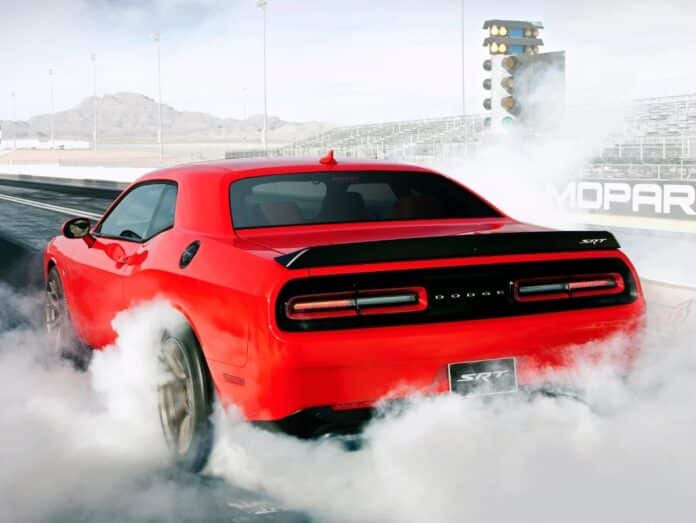“Torque is a force that twists.” It corresponds to the rotational force provided by the crankshaft in an automobile. Torque is used to determine the amount of work a motor can perform.
What Is Torque?
Torque is a force of twisting. Suppose you have a bolt with a nut on it, and you wish to unscrew the nut using a wrench. To loosen the nut, you place the wrench on it and apply a certain amount of force. The force generated is known as torque.
Multiplying the force applied to the wrench by the length of the wrench yields torque. Thus, by employing a longer wrench, greater torque can be achieved. For example, if you apply two pounds of force with a one-foot-long wrench, you are applying two pounds-feet (lb-ft) of torque to the nut. However, if you apply the same force with a 10-foot-long wrench, you can apply 20 lb-ft of torque to the nut.
How Does Torque Work in a Car?
So, how does torque function in a vehicle? The torque is generated by the engine. In an internal combustion engine, energy is created by the reciprocating motion of the pistons within the cylinders. This energy is converted by the crankshaft into torque, which is ultimately transmitted to the drive wheels.
Simply put, torque measures the ability of a vehicle to perform work. Therefore, the more torque an engine has, the more power it can generate. If your engine has a high amount of torque, your car can accelerate faster as it begins to move. Torque is also essential when your vehicle is performing strenuous tasks, such as moving heavy loads or climbing a steep hill.

Torque in Different Engine Types
Depending on the engine type, a vehicle’s torque output may vary. In conclusion, diesel engines typically have greater torque than gasoline engines, making them more suitable for towing and climbing.
Diesel engines produce more torque than gasoline engines because diesel engines compress air more. A diesel engine relies solely on the air’s heat to ignite the fuel, as opposed to a spark plug. What relevance does this have to torque? Well, the higher the compression ratio, the greater the engine’s efficiency, which is directly proportional to torque. This indicates that the diesel engine has a greater amount of torque due to its higher compression ratios.
Torque in a Gasoline Engine: In a gasoline engine, the fuel is combusted using a spark plug. Before a complete ignition occurs, the piston within a cylinder descends a considerable distance. In other words, the piston has already descended from the top before the fuel ignites. As a result, the gasoline engine’s speed decreases, reducing torque.
Torque in an Electric Vehicle Electric vehicles are propelled by an electric motor. An internal combustion engine requires multiple gears to reach its maximum speed, whereas an electric motor can reach its maximum torque instantly. In addition, the electric vehicle has a reducer, a type of transmission, to effectively transmit the motor’s power to the wheel. Due to the motor’s exceptionally high torque, a reducer is required to adjust the motor’s rpm to the appropriate level for the driving conditions. Therefore, electric vehicles can save power due to the reduced rpm, resulting in increased torque.
Torque in a Hybrid Engine: A hybrid engine is either a gasoline engine coupled to an electric motor or a diesel engine coupled to an electric motor. In a gasoline hybrid, a motor can deliver high torque comparable to that of an electric vehicle at lower speeds, thereby offering the same benefits in terms of quick torque, resulting in improved fuel economy and performance. In the case of a diesel hybrid, however, it is difficult to maximize the motor’s capabilities due to the diesel engine’s high torque output.
The Relationship Between Torque and Horsepower
When discussing automobiles, the terms “torque” and “horsepower” inevitably come up, but the majority of people do not understand what they mean. Torque is a measure of the work that an engine is capable of performing. Horsepower is the rate at which a vehicle can complete a task, which corresponds to the crankshaft’s rotational speed.
For instance, buses and trucks must have a high torque, but not necessarily a high horsepower. Because they are always required to perform laborious work but are not required to do so quickly. Calculating horsepower mathematically requires torque. The two are closely related, and we must consider both to determine which vehicle is best for us.

